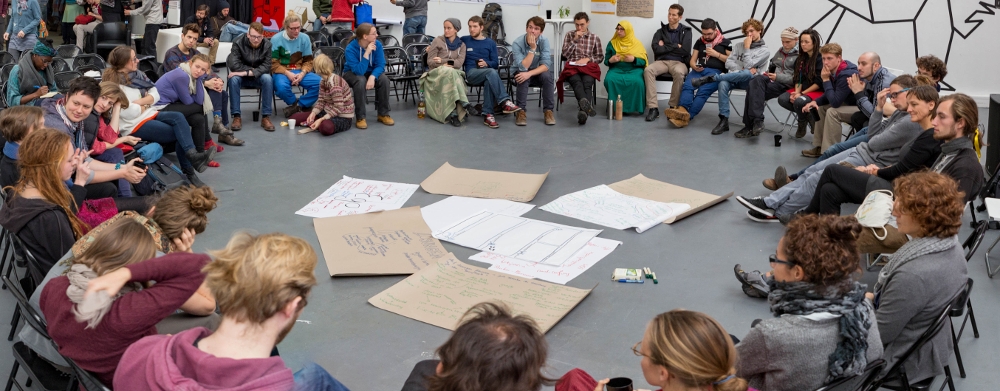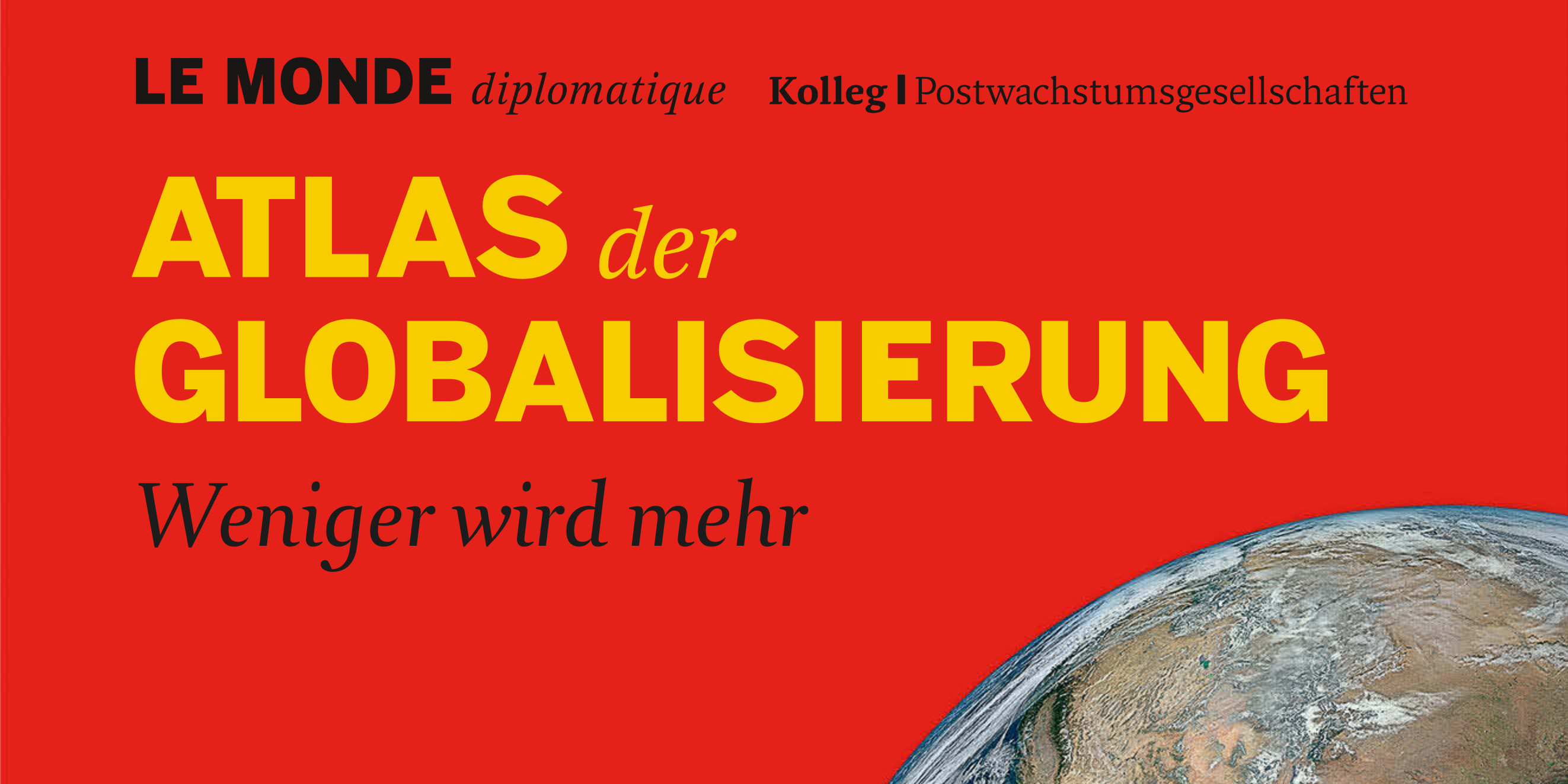This year we celebrate the 10th anniversary of the first international degrowth conference in Paris (2008). This event introduced the originally French activist slogan décroissance into the English-speaking world and international academia as degrowth. I want to take stock of the last decade in terms of conferences, publications, training and more recently policy making. I focus only on the academic achievements in English, leaving on the side both activism and intellectual debates in other languages (these are huge, especially in French, Spanish, Italian and German). This is not because I think it is more important, but simply because it is the process in which I have been personally involved.
1) Biennial International Conferences on Degrowth for Ecological Sustainability and Social Equity
The academic collective Research & Degrowth (R&D) aims at the facilitation of networking and the flow of ideas between various actors working on degrowth, especially in academia. For this reason, as well as in order to increase the visibility of the degrowth ideas and proposals in the public space, R&D has organized the 1st (Paris 2008) and 2nd (Barcelona 2010) conferences, and called with a Support Group for the 3rd (Venice and Montreal 2012), 4th (Leipzig 2014) and 5th (Budapest) ones. Apart from demonstrating latest research in the field, the conferences aim at promoting cooperative research and work in the formulation and development of research and political proposals. In keeping with this spirit, in 2018 there will be three international conferences:Many other conferences and workshops have taken place. For instance, the conferences of the European Society for Ecological Economics (ESEE) have been important to advance the debate (Istanbul 2011, Lille 2013, Leeds 2015 and Budapest 2017), and the society has endorsed the degrowth conferences since Paris 2008.
2) Academic publications: Special issues, articles and books
In 2008 there were only a couple of published papers in English on degrowth (Latouche, 2004 and Fournier, 2008). I have lost count, but today there are probably over 200 published papers (For a review see Weiss and Cattaneo, 2017; and Kallis et al, 2018). The Media Library at degrowth.info aims to collect them all. An article has also been just published in the new prestigious journal Nature Sustainability (O'Neill et al, 2018). I think the eight special issues have played an important role in proving the legitimacy of the research questions raised by degrowth as an academic concept (Schneider et al. 2010; Cattaneo et al 2012 Saed 2012; Kallis et al. 2012; Sekulova et al 2013; Whitehead, 2013; Kosoy, 2013; Asara et al, 2015). We might be assisting in the emergence of a new scientific paradigm, in the sense of ‘universally recognized scientific achievements that, for a time, provide model problems and solutions for a community of researchers’ (Kuhn, 1962: x). After this first wave of generalist special issues I expect a second wave: on specific themes (Technology and Degrowth by Kerschner et al 2015; Forthcoming: Tourism and Degrowth in the Journal of Sustainable Tourism, Environmental Justice and Degrowth in Ecological Economics, and a tentative one on Feminisms and Degrowth) or that introduce degrowth to a new discipline (e.g. Anthropology: Degrowth, Culture and Power by Gezon and Paulson, 2017; Geography: forthcoming Geographies of degrowth in Environment and Planning E). The book “Degrowth: A Vocabulary for a New Era” (Routledge, 2014) has been translated into ten languages. Others have been published (e.g. Bonaiuti, 2011; Kallis, 2017, 2018; Borowy and Schmelzer, 2017; Nelson and Schneider, 2018). More are coming, and we plan to launch soon a book series, most likely with a university publisher.
3) Training: Summer schools, Reading groups and Master degree
The youth participating in the degrowth conferences proved a need for training opportunities. The summer school in Barcelona on degrowth and environmental justice has arrived to its seventh edition. A more activism oriented one is regularly organized at climate camps in Germany. Degrowth is taught in many university courses, and in Barcelona we are about to launch a master degree in political ecology, degrowth and environmental justice, starting in October 2018. Our Degrowth Reading Group in Barcelona has been running for 8 years, and many more exist around the world.
4) Policy making: Degrowth into the parliaments, ecological macroeconomics
I have argued elsewhere that degrowth is entering into the parliaments. Some political parties have started to adopt degrowth oriented or degrowth compatible proposals in their political programs. At the House of Commons in London there is an ‘All-Party Parliamentary Group (AAPG) on limits to growth'. Recently, a seminar was hosted at the European Commission titled “Well being beyond GDP growth?”. The emerging field of ecological macroeconomics is shedding some light on policy related challenges (Victor, 2008; Rezai and Stagl, 2016; Jackson, 2017; Hardt and O'Neill, 2017).
The future is a blank canvas. We need to think of aims, strategies and priorities. Let me mention two, one looking inward into the degrowth community, and the other reaching outward. Inward, there is the survey for mapping degrowth groups worldwide. The resulting map will represent an attempt to bring together groups and individuals for political and practical actions on degrowth that builds upon the biennial conferences. The map might evolve into a (loose) network that fosters the creation of synergies among individuals and organizations that situates degrowth as the common horizon. The degrowth blog already offers a space for these conversations. A networking meeting will be held at Christiania (Copenhagen), one day before the Malmo conference. Outward, one aspect is to strengthen the relationships with close research and activist communities like the ones of feminisms, environmental justice, political ecology, ecological economics, post-extractivism, anti-racism, commons, decoloniality, post-development, economic and environmental history. An interesting precedent is the project Degrowth in movement(s) that explores the relationships with over 30 different perspectives. There is also the FaDA: Feminisms and Degrowth Alliance. For the future, in Budapest Ashish Kothari (min 52.25) proposed a ‘Global Confluences of Alternatives’, along the lines of the Indian experience, Vikalp Sangam (Hindi for 'Confluence of Alternatives '). The start could be a joint visioning process. Fortunately, there are already great ongoing projects, like TransforMap to get motivated and learn from.
The how needs to be thought through (e.g. it could be a joint conference), but the why is clear. The alliances among these networks, and networks of networks, are fundamental to weave the alternatives and foster a deeply radical socio-ecological transformation. We could imagine it as a rhizome of resistance and regeneration.

Was hat Cola mit gesellschaftlichen Utopien zu tun? Elena Tzara im Interview mit Tobi Rosswog Vom 04. - 06. November fand in Berlin die erste Utopie-Ökonomie-Konferenz UTOPIKON statt. 300 Menschen tauschten sich in 20 Workshops und 5 Keynotes zu Wegen und Herausforderungen in eine geldfrei(er)e Gesellschaft aus. In einer kleinen Inverviewreihe stellen wir einige der Referent*innen vor. Wir b...
By Ashish Kothari, Federico Demaria and Alberto Acosta André Reichel’s very thoughtful piece ‘Retaking sustainable development for degrowth’ raises several very important issues. We start by acknowledging that we and Reichel are clearly on the same page in criticizing current models of ‘growth’ including in its ‘green’ and ‘eco-modernist’ forms. We concur also on the need for the world to move...

Von Christiane Kliemann Dass es mit dem Wirtschaftswachstum auf einem begrenzten Planeten nicht ewig so weitergehen kann, ist inzwischen vielen Menschen klar. Was jedoch alles damit zusammenhängt – sowohl mit dem Wachstum selbst als auch mit der Abkehr von demselben – ist oft nicht auf den ersten Blick ersichtlich. Unter dem Motto „weniger wird mehr“ gibt der „Postwachstumsatlas“ von Le Monde ...